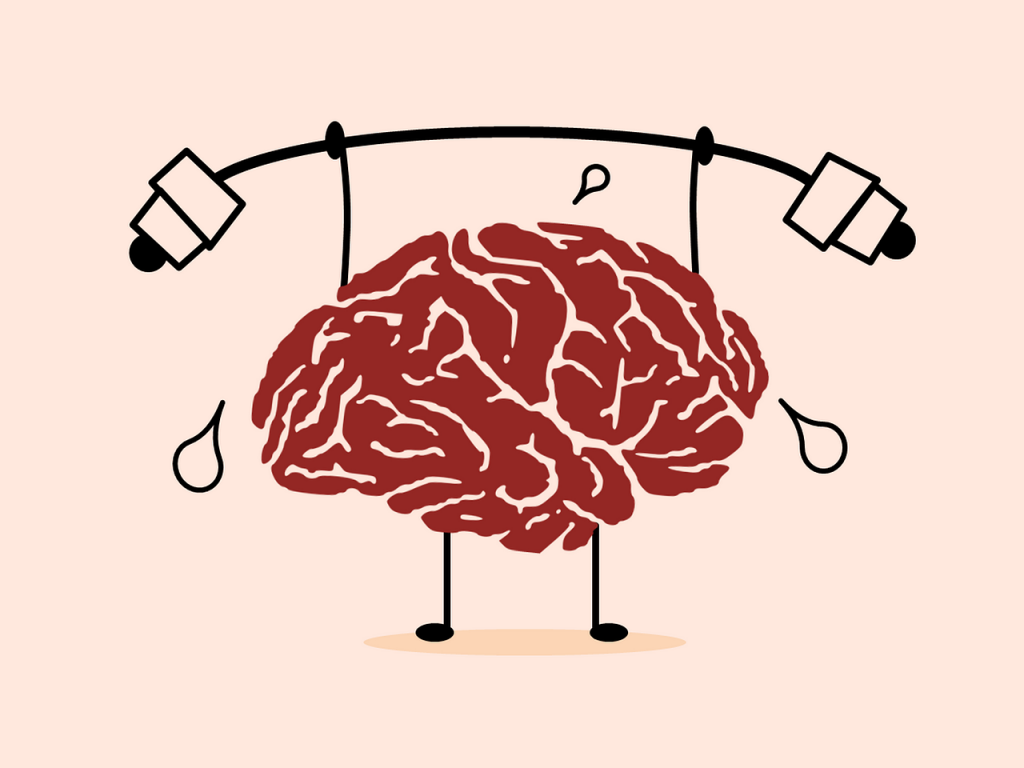Unseen Helpers: Genetics and Your Hormonal Blueprint
Exploring how our genetic makeup influences hormonal regulation can provide crucial insights into maintaining balance. While lifestyle choices are essential, understanding genetic predispositions offers a more personalized approach to hormonal health.
The Role of Genetic Variants
The genetic variations in our DNA can significantly impact hormone balance by affecting neurotransmitter activity and hormone detoxification pathways. Key genes like MTHFR, COMT, and MAO play roles in how our hormones are regulated.
- MTHFR Gene: Crucial for folate metabolism, which influences DNA methylation and neurotransmitter synthesis. Variations can affect mood, energy levels, and how efficiently hormones are regulated.
- COMT Gene: Helps in breaking down neurotransmitters such as dopamine and norepinephrine. Variations can impact stress responses, mood, and the metabolism of hormones like estrogen.
- MAO Gene: Involved in the breakdown of serotonin and other neurotransmitters, affecting mood stability and hormone balance.
Understanding these genetic factors can guide personalized strategies for improving hormonal regulation, potentially including specific dietary recommendations or lifestyle changes to optimize hormone function.
DNA Methylation and Hormone Regulation
DNA methylation involves adding a methyl group to DNA, affecting how genes are expressed without altering the DNA sequence. This process is vital for regulating hormone production and balance.
- Environmental Influences: Factors like diet, stress, and exposure to toxins can alter methylation patterns, potentially leading to hormonal imbalances.
- Tailored Interventions: By analyzing individual methylation patterns, healthcare providers can devise targeted interventions to support hormone health. This may involve specific dietary supplements or lifestyle adjustments to promote better metabolic and hormonal functions.
Genetic Predisposition and Hormone-Related Complications
Individual genetic makeup shapes how our body handles hormonal processes, influencing the risk of conditions that affect metabolism and hormone balance.
- Metabolic Diseases: Genetic factors can predispose individuals to conditions like diabetes and obesity, which affect hormone regulation.
- Precision Medicine: Understanding these genetic contributors is vital for advancing precision medicine, offering tailored treatment options for each individual's hormonal needs.
The Influence of Stress and Genetics on Hormones
Stress triggers in our environment, mediated by systems like the hypothalamic-pituitary-adrenal (HPA) axis, can deeply affect hormonal balance. Genetic predispositions can amplify these effects.
- HPA and SAM Axes: These systems play a crucial role in stress responses, significantly impacting hormone levels and women's reproductive health.
- Genetic Amplification: Individual genes may intensify the effects of stress, influencing hormone levels and potentially leading to conditions like polycystic ovary syndrome (PCOS).
Gene-Edited Therapies and Immune Modulation
Advancements in gene-editing techniques and immune modulation are paving the way for more personalized hormone therapies, focusing on correcting genetic defects and restoring balance.
- Targeting Genetic and Immune Pathways: These therapies focus on repairing genetic defects affecting hormone production and modulating the immune response to preserve hormone-producing cells.
- Future Directions: Such approaches open new avenues for treating hormone-related disorders, especially in autoimmune conditions like type 1 diabetes.
Beyond Hydration: How Water Intake Affects Hormonal Functioning
Staying hydrated is commonly discussed in the context of overall health, but its specific effects on hormone regulation require additional exploration. Water intake plays a crucial role in maintaining hormonal equilibrium.
Hydration and Stress Hormone Levels
Dehydration triggers a stress response that can elevate cortisol, impacting various hormonal systems. Cortisol, while necessary for stress management and inflammatory processes, can cause issues when chronically elevated.
- Cortisol Management: Proper hydration reduces unnecessary cortisol surges, allowing the body to manage stress more efficiently. Keeping well-hydrated can contribute to a more balanced hormonal state, helping mitigate weight gain and sleep issues linked to cortisol.
Water's Role in Cellular Function and Hormone Production
Water is indispensable for cellular activities that underpin hormone production, impacting everything from nerve impulse transmission to muscle function.
- Cellular Efficiency: Adequate water levels ensure cells operate efficiently, supporting hormone synthesis and receptor activity. When dehydrated, the body struggles with these functions, potentially exacerbating hormonal imbalances.
The Link Between Hydration and Growth Hormone
Research indicates dehydration adversely impacts growth hormone levels, essential for growth and recovery.
- Promoting Recovery: Staying hydrated supports optimal growth hormone production, aiding tissue repair and overall recovery after physical exertion or injury.
Hydration, Blood Volume, and Nutrient Delivery
Maintaining healthy blood volume ensures effective nutrient transport to all bodily systems, including those involved in hormone production.
- Nutrient Transport: Dehydration affects blood volume, impairing nutrient delivery and, consequently, hormone synthesis and regulation.
Hydration and Metabolic Efficiency
Maintaining adequate hydration is vital for efficient metabolism, affecting the body's ability to process nutrients and expel waste.
- Metabolic Functions: Dehydration slows metabolism, which indirectly influences hormone management. A well-hydrated system aids in maintaining metabolic efficiency and hormonal harmony.
The Interplay of Diet, Stress, and Sleep in Hormonal Balance
Diet, stress, and sleep significantly affect hormonal balance. Acknowledging these elements offers opportunities for achieving harmony in hormone function.
The Impact of Stress on Hormones
Chronic stress disrupts hormonal balance, predominantly through the excess production of cortisol, affecting hormones like estrogen and testosterone.
- Managing Stress: Stress management techniques such as mindfulness, exercise, and relaxation can mitigate cortisol's adverse effects, reducing the risk of hormonal imbalance-related conditions.
The Role of Sleep in Hormonal Regulation
Sleep is integral to hormone production, including those governing growth, metabolism, and well-being.
- Optimal Sleep: Proper sleep schedules support hormonal cycles, enhancing energy and mood regulation. Addressing sleep hygiene and environmental factors can significantly improve hormone-related symptoms.
How Diet, Stress, and Sleep Work Together
Dietary habits, stress management, and sleep interact dynamically, affecting hormonal landscapes.
- Holistic Approach: Emphasizing a balanced diet rich in whole foods, coupled with effective stress management and sleep practices, fosters hormonal health. This interconnected approach leads to sustainable improvements in both physical and emotional well-being, demonstrating the profound impact of lifestyle on hormonal harmony.
Q&A
-
What role does cortisol balance play in overall health?
Cortisol is a crucial hormone that helps manage stress and regulate metabolism. Maintaining cortisol balance is essential for overall health as imbalances can lead to issues such as weight gain, fatigue, and immune system suppression. Effective stress management techniques and adequate sleep are important for maintaining cortisol balance. -
How do estrogen and progesterone affect women's health?
Estrogen and progesterone are key hormones in regulating the menstrual cycle, reproductive health, and secondary sexual characteristics. An imbalance between these hormones can result in symptoms like mood swings, irregular periods, and fertility issues. Maintaining a healthy lifestyle and consulting healthcare providers can help manage these hormone levels. -
What is the significance of insulin function in metabolic health?
Insulin is vital for regulating blood sugar levels. Proper insulin function ensures that glucose is efficiently used for energy, while dysfunction can lead to conditions like insulin resistance and type 2 diabetes. Diet, exercise, and weight management play critical roles in supporting healthy insulin function. -
How do melatonin cycles influence sleep patterns?
Melatonin is a hormone that regulates sleep-wake cycles. Its production increases in the evening to promote sleep and decreases in the morning to help wakefulness. Disruptions in melatonin cycles, often due to exposure to artificial light or irregular sleep schedules, can lead to sleep disorders. Maintaining a consistent sleep routine and minimizing screen time before bed can support healthy melatonin cycles. -
What are hormone-friendly foods, and how do they impact hormone balance?
Hormone-friendly foods are those that support endocrine function and hormone balance, such as leafy greens, nuts, seeds, and fatty fish. These foods provide essential nutrients and antioxidants that aid in reducing inflammation and supporting hormone production and regulation. Incorporating these foods into your diet can promote overall hormonal health.








